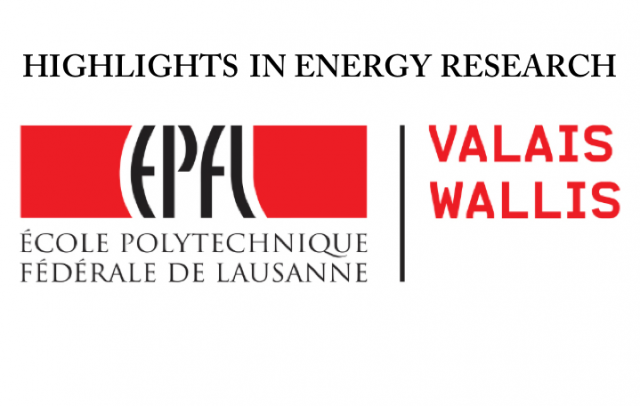Veranstaltung
Energy, Wealth and the Challenge for the Future
ChE-605 - Highlights in Energy Research seminar series
EPFL Valais Wallis
The first publication of the global warming due to the increase of the CO2 concentration in the atmosphere by Svante Arrhenius in 1896 in the Philosophical Magazine was doubted and ignored for almost 100 years. Only at the end of the last century the global consequences of the anthropic CO2 emission became a major concern and science and technology focused on the conversion of renewable energy (solar, wind, hydro) in order to reduce the dependency on fossil fuels and reduce the emission of CO2. The recent development in installed peak power of wind generators and photovoltaics makes storage of energy from renewable sources the greatest challenge of the coming 10 years. The population globally is growing and in order to increase the wealth the demand for energy and materials is expected to grow significantly. Therefore, the materials cycles have to be closed especially energy materials in order to overcome the negative effects of the fossil fuel combustion on the environment and the limited global resources.
The technical solution is to produce hydrogen from renewable electricity. Hydrogen production by electrolysis is an established technology, but currently large scale electrolyzers in the GW range are not yet available. The storage of hydrogen under high pressure, in liquid form or in hydrides is a material challenge. Hugh progress was made in the development of new hydrogen storage systems in the last 20 years and the gravimetric hydrogen density was increased by an order of magnitude in hydrides. However, based on todays knowledge we will not be able to double the hydrogen density in materials anymore and, therefore, the energy density is limited to approximately 50% of the energy density of liquid hydrocarbons.
The hydrogen can be used to reduce CO2 from the atmosphere in order to synthesize liquid hydrocarbons. This requires large scale production of hydrogen from renewable energy, hydrogen storage, adsorption of CO2 from the atmosphere and finally a well controlled reaction of H2 and CO2 to a specific, preferably liquid, product, e.g. octane. The storage of liquid hydrocarbons is an established technology.
Weitere Informationen
Referenten
- EPFL Valais Wallis
Andreas Züttel
Full Professor
Veranstalter
-
EPFL Valais Wallis
Rue de l'Industrie 17
Case postale 440
1951 Sion
Telefon +41 (0) 21 695 82 00
Webseite
Rubrik
Art der Veranstaltung: Vortrag/Konferenz
Zielpublikum: Fachleute
Veranstaltungsort
EPFL Valais Wallis - Conference Room : Tseuzier
Rue de l'Industrie 17
Case postale 440
1951 Sion
Telefon +41 (0) 21 695 82 00
Webseite




